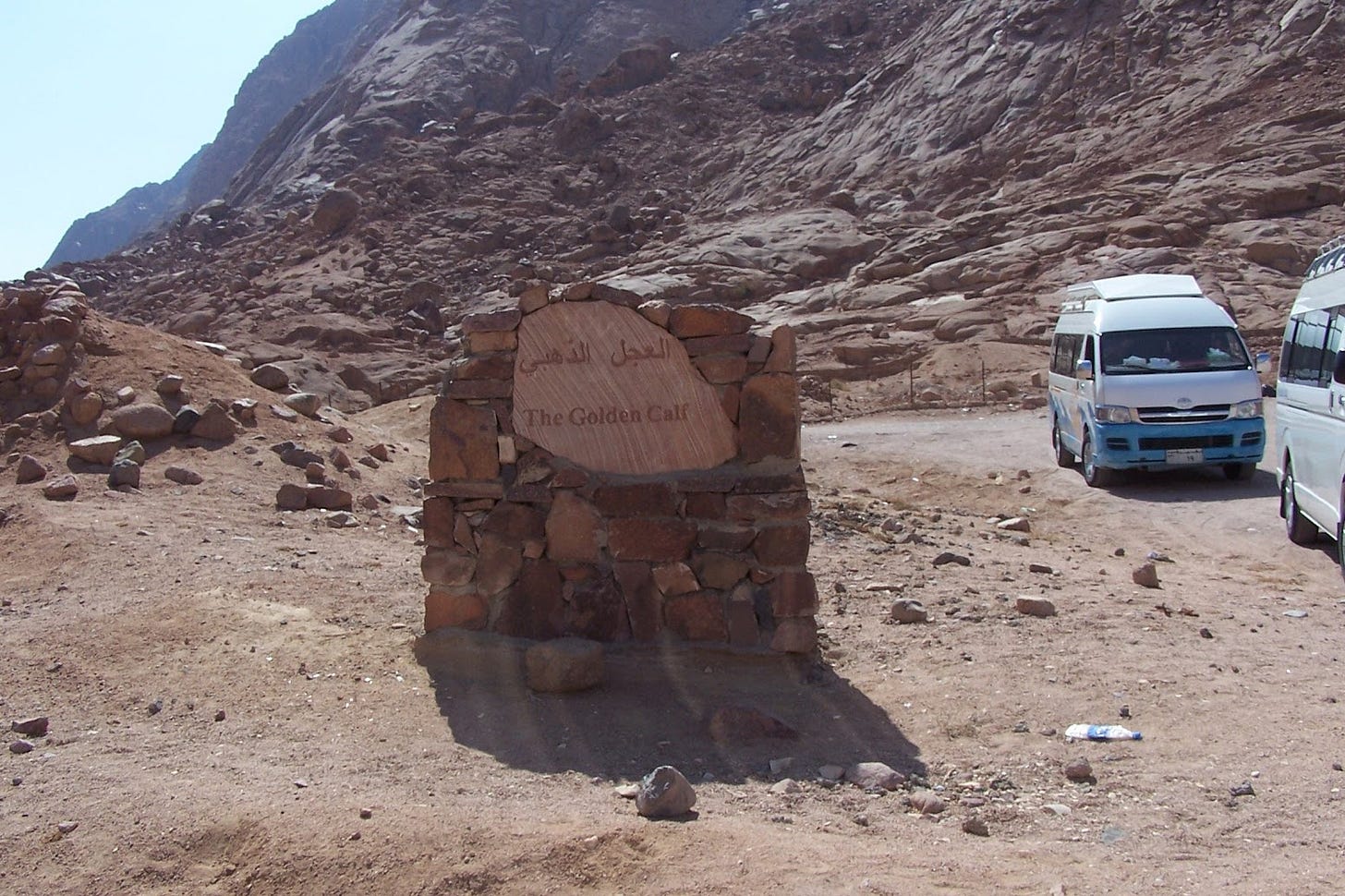Have you ever been in the wilderness? A few years ago, I visited Mount Sinai and saw first-hand what the wilderness is like—very hot, dry, barren, and with extremely scarce vegetation and rocks, big rocks everywhere. As I looked at the steep, rugged terrain at the foot of the mountain, I thought about the command God gave to Moses to not let anyone or any animal venture up the mountain. All I could think at the time was, why would anyone want to? The thing about the wilderness is that it’s where you sometimes have 'Sinai moments' of engagement with God—earthquake, fire, and overwhelming presence.
Talking of wilderness…
It’s the word God uses in Exodus 7 when He tells Moses to say to Pharaoh: “Let my people go, so that they may worship me in the wilderness” (v. 16). The wilderness—not a palace or a temple, not some epic city filled with lights and fountains, McDonald’s, KFCs, and crowds. No, God calls His people to leave the great comfort zones of life and go... out there. To the barren, dry, harsh wilderness. At least, that’s where God was calling Israel—away from the pots of meat and all the food they wanted in Egypt. Stockholm Syndrome would kick in!
This feels backwards. When you think about worship and imagine connecting with God, you probably think of music, joy, and beauty. You think of spaces that feel safe and full of life, but God says, “No, put down your pots of meat and veggies. We’re going out there, to the place where there’s no Wi-Fi, no distractions, and no escape routes.”
We can see why. The wilderness is where everything else gets stripped away, where you realise that all the things you thought were holding you together—the routines, the comforts, the systems—they can’t actually save you, serve you, or endure the difficulties of the days ahead. The wilderness is where you confront your dependence, where you learn that God isn’t a distant deity who swoops down now and then to help and then leaves. He’s the One who sustains you—moment by moment, faithful, true, and with you forever.
That’s why He calls His people into the wilderness—be it to intimacy, discipleship, character development, or growth in maturity. Not to destroy them or punish them, but to free them.
The Israelites had spent generations in Egypt, surrounded for years and years by gods who weren’t real—genuine, authentic fakes—and a taskmaster system that crushed their souls. They were a nation within a nation; Egypt was all ‘they’d’ ever known. And when you’ve lived in Egypt long enough, you start to believe the lie that you belong there—that you’re just a cog in the machine-that this is all there is.
But God—He sees differently.
He says, This isn’t who you are. You’re not slaves; you’re mine.
And so, surrounded by Seraphim, Cherubim, Ophanim, and tens and tens of thousands of angels in full glory and majesty, He calls them—His people—out. Out of oppression. Out of the noise. Out of everything that numbs and dulls the senses to the reality of His presence. He calls them into the wilderness—the best place on planet Earth for them at this time—because that’s the very place where they’ll learn to trust Him, to see Him, and to worship Him.
Don’t give up
Here’s the thing about the wilderness: it’s hard, not nice, confusing, and lonely. And most of the time, it feels like a mistake. When the Israelites get out there, away from the pots of meat and veggies, they start to panic. They say things like, “Why did you bring us here to die? Wouldn’t it have been better to stay in Egypt?” (Exodus 14:11). It's hard (and maybe inappropriate to compare or contrast our situation with theirs), and maybe we say the same thing—have the same attitude.
When God calls us into a wilderness season—when life feels uncertain, painful, or dry—we start to wonder if we got it all wrong and long for the comfort of Egypt, even though we know deep down that Egypt wasn’t really home.
We should reassure ourselves that God doesn’t lead us into the wilderness to abandon us. He leads us there to transform us, to help us discover peace, presence, and to flourish.
It’s in the wilderness that you start to see who God really is. He’s not a hostile, aggressive, demanding taskmaster like Pharaoh. He’s a Father who provides manna when you’re hungry and water when you’re thirsty; who doesn’t just free you from Egypt—He frees Egypt from you. That’s probably the great exodus we all need.
And that’s the whole point. The wilderness is where we learn what it means to worship. Not worship in theory or worship when life is good, but the kind of worship that is joyfully ignited like spontaneous combustion and comes from knowing deep in your bones that God is enough.
Even when the land feels dry, parched, and barren, He’s the well that never runs dry—overflowing, refreshing, and sustaining.






Love the closing reminder! He is the well that never runs dry.